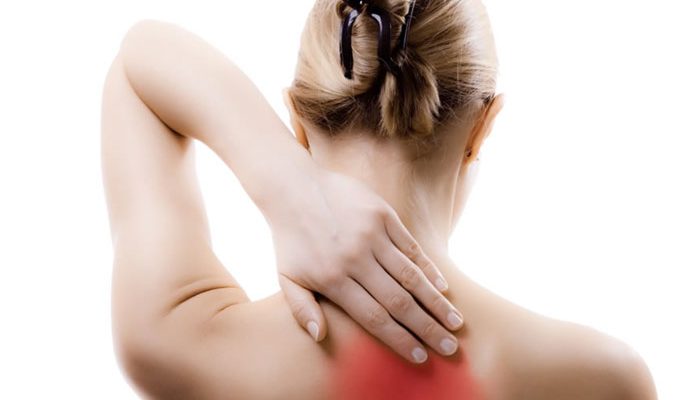The human spine is made up of 33 individual bones called vertebrae. There are 7 vertebrae in the cervical (neck) region, 12 in the thoracic (behind rib cage) region, 5 in the lumbar (lower back) region, 5 in the sacrael (near hip and pelvic) region, and 4 in the coccygeal (tailbone) region. The human spine also contains 23 rubber-like cushions called spinal disks, which are located between the vertebrae and act as shock absorbers for the spine during movement.
Having a herniated disk means that there is a problem with one of these rubbery cushions. To envision a spinal disk, you can think of a jelly donut. Like a donut, a spinal disk has a softer interior but is encased with a stronger exterior. A herniated disk, which is also called a ruptured disk or slipped disk, occurs when the softer “jelly” substance gets squeezed out of the disk through a tear in the stronger exterior.
While some people may experience little or even no symptoms of a herniated disk, others will report multiple life-altering symptoms. When a herniated disk irritates nearby nerves, the most common symptoms are pain as well as numbness, weakness, and tingling sensations in the arms or legs. Many people who suffer from a herniated disk will not require surgery to correct the problem.
When patients are diagnosed with a herniated disk and have suffered no injury or accident, they often do not know what caused their condition. In most cases, disk herniation is simply caused by age-related wear and tear that is officially called “disk degeneration.” Being overweight can also cause a herniated disk, as can weight lifting or having a physically demanding job. Further, research has indicated that genetics play a role in a person’s likelihood to develop a herniated disk.
Always get medical attention if your neck or back pain results in numbness, tingling, or weakness. Stridewell Tips
Related: What to Do After Getting a Herniated Disc from a Car Accident
When dealing with issues related to the spine, always seek Emergency Medical Attention if you have bladder or bowel dysfunction, loss of sensation in your inner thighs, back of legs, and the area around the rectum. Urgent medical care is also required if you experience pain, numbness, or weakness that worsens to the point that you cannot perform your usual daily activities.
When understanding your spine’s condition, it’s important to remember that your spinal cord doesn’t go all the way down into the lower portion of your spinal canal. In fact, the spinal cord separates into a bunch of long nerve roots called cauda equina, which literally look like the tail of a horse. In certain rare cases where disk herniation compresses the entire cauda equina, emergency surgery may be necessary to avoid permanent weakness and even paralysis.
You may not be able to avoid having a herniated disk, but certain everyday habits, such as maintaining good posture and being mindful of your health, can greatly decrease the odds of you having to deal with this condition. Further, maintaining a healthy body weight is also helpful as excess weight puts stress on the spine.
Lastly, engaging in regular exercise that strengthens the core and helps to support the spine can also make a significant difference in helping to keep your spine healthy.
read article


